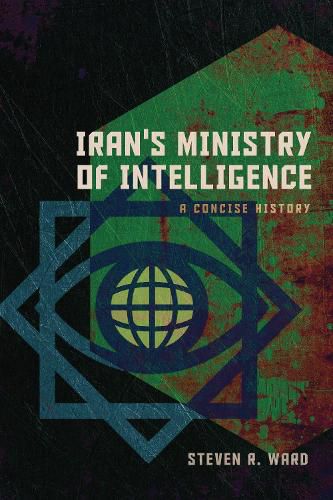Readings Newsletter
Become a Readings Member to make your shopping experience even easier.
Sign in or sign up for free!
You’re not far away from qualifying for FREE standard shipping within Australia
You’ve qualified for FREE standard shipping within Australia
The cart is loading…






The first book about Iran's shadowy Ministry of Intelligence
Steven R. Ward provides an accessible overview of Iran's Ministry of Intelligence (MOIS) and its focus on tracking and countering domestic dissent and perceived foreign-inspired sedition. The ministry's checkered record of effective intelligence operations includes a history of assassinations and human rights abuses. Developing a clearer picture of the MOIS is important for understanding how the Islamic Republic of Iran operates, seeks security, and competes with its adversaries.
Iran's Ministry of Intelligence updates and improves on the paucity of available information about Iranian intelligence activities. The chapters in the book cover the MOIS's origins, leaders, structure and organizational culture, operations and tradecraft, foreign partners, cultural representations, and future outlook. The book also provides a significant examination of this contemporary intelligence agency that does not follow the model of Western organizations.
Iran's Ministry of Intelligence will be of interest to scholars, students, and general readers of intelligence and Iran's history and politics. It will also be an important resource for national security and foreign policy practitioners.
$9.00 standard shipping within Australia
FREE standard shipping within Australia for orders over $100.00
Express & International shipping calculated at checkout
The first book about Iran's shadowy Ministry of Intelligence
Steven R. Ward provides an accessible overview of Iran's Ministry of Intelligence (MOIS) and its focus on tracking and countering domestic dissent and perceived foreign-inspired sedition. The ministry's checkered record of effective intelligence operations includes a history of assassinations and human rights abuses. Developing a clearer picture of the MOIS is important for understanding how the Islamic Republic of Iran operates, seeks security, and competes with its adversaries.
Iran's Ministry of Intelligence updates and improves on the paucity of available information about Iranian intelligence activities. The chapters in the book cover the MOIS's origins, leaders, structure and organizational culture, operations and tradecraft, foreign partners, cultural representations, and future outlook. The book also provides a significant examination of this contemporary intelligence agency that does not follow the model of Western organizations.
Iran's Ministry of Intelligence will be of interest to scholars, students, and general readers of intelligence and Iran's history and politics. It will also be an important resource for national security and foreign policy practitioners.